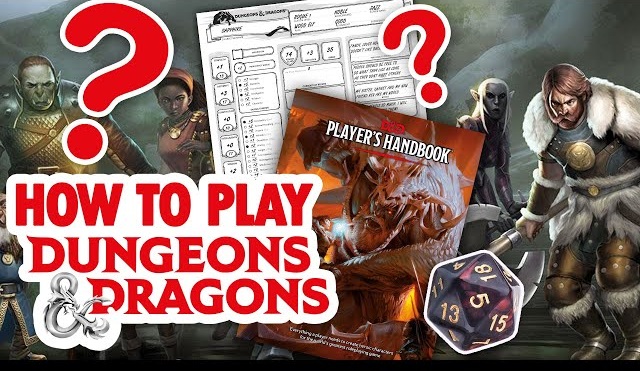It’s coming!
The mystery forty-thousand-dollar part has arrived. Channel 25 is going to live within a very short time. Todd Krause and Mary Jo Fesenmaier have come through with a few other important players as well. The public, especially the aging public, will now be able to simply tune in to that channel on their television and watch all sorts of local meetings, city councils, commissions, and more. No more ‘streaming’ or trying to find junk on the Internet. Thanks so much to a sensitized and caring leadership. If only the administrative team in Lake Geneva could take over the leadership of the national government!
Ever wondered how to play Dungeons & Dragons or what it is all about?
Dungeons and Dragons (D&D) is a Tabletop Role-playing Game, or TTRPG; a collaborative storytelling and board game experience where various dice rolls help to decide how the game and story progress. D&D can be played with a minimum of 2 people, but often having 3-5 people is an ideal table size. At minimum, you’ll need a Dungeon Master (DM), or Game Master in other TTRPGs, and one or more Players.
That being said, there is really no limit to how large an adventure party can be, so feel free to invite as many friends as you can fit. The DM will lead each game session, develop adventures, adjudicate the rules, and fill the worlds you adventure in with people, places, and things to interact with. No game of D&D is complete without a set of shiny math rocks! For the game, you will need a set of polyhedral dice including a 4-sided die, a 6-sided die, an 8-sided die, a 10-sided die, a 12-sided die, and a 20-sided die. These dice are colloquially referred to as a d4, d6, d8, d10, d12, and d20 respectively. The Dungeon Master and each player will only need one set of dice. A character sheet contains a detailed look at your characters’ stats, abilities, equipment, and any other pertinent information.
Miniatures and Game Boards are optional but can help aid in the visualization of the characters and scenes. They are used to show the setting and the placement of characters, villains, and monsters during combat. Players alternate sharing the spotlight to describe what their characters are thinking, feeling, or doing whether it’s drinking in the tavern, exploring the world, talking to NPCs, or fighting a Hydra. The DM controls the flow of the game, if there’s something you’d like to do, ask. Depending on the actions you take during an adventure your DM may ask you to roll dice to determine the outcome of an endeavor that has a risk of failure. Your DM will set the difficulty called a DC (difficulty check), and you will roll your dice and add any relevant modifier from your character sheet. If you beat the DC, then you are successful in your attempt.
Anyone interested in playing or learning more can do so at the Lake Geneva Games, the Lake Geneva Public Library, or even rent the house on Center Street where the game was created and brought to life.









